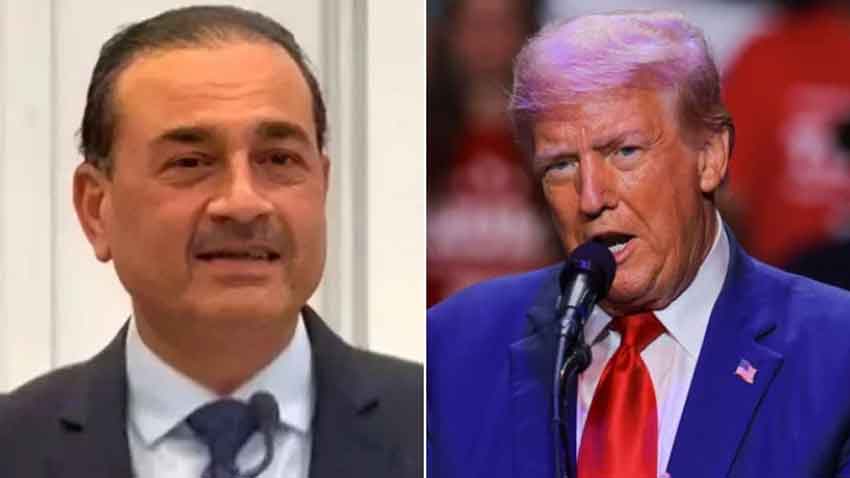
It comes in the wake of four days Pakistan – India military conflict in May. Pakistan’s actions during the crisis were rational, legal and necessary for ensuring stability in South Asia. While India behaved irrationally and illegally, without any regards for principles of international peace and security.
Discussions were not restricted only to security instead, encompassed broad range of issues covering trade, economic development, artificial intelligence, cryptocurrency, counter terrorism besides Israel-Iran military conflict.
Broad spectrum of issues discussed, indicates Pakistan’s shifting focus from geo-strategic to geo-economics preferring trade and investments instead of aid.
It validates Pakistan’s position as a critical player in West Asia and a regional stabilizer in South Asia. It also confirms that Pakistan seeks to be a partner in peace and doesn’t desire to be part of any geo-political competition.
Pakistan believes in peaceful co-existence with its neighbours based on principles of mutual respect and sovereignty.
Pakistan seeks ‘Mutual Economic Cooperation’ with USA through trade, investments in minerals, energy and agriculture. Strong economic cooperation will also help build US credentials in Muslim world.
US is Pakistan’s largest and growing export market which reflects enduring US trust in the quality of Pakistani goods and services. Trump administration’s concerns and expectations regarding tariffs can surely be addressed through timely mutual consultations and understanding to ensure both nations continue to mutually benefit from each other’s growing and profitable cooperation in the foreseeable future. Pakistan values US influence and goodwill to facilitate international financial support and assistance vide multilateral IFIs which reflects an enduring US interest and commitment towards Pakistan’s progress, development and economic stability. Pakistan does not view its economic and developmental cooperation with any other country as a zero-sum competition nor is Pakistan currently is or aims to be an ally of any other status quo, resurgent or emerging power to harm the US global or regional interests. Pakistan’s objective, as a peaceful nation is only to improve the quality of lives of its 240 million people.
US should not view Pakistan’s relations with China in a negative light as they are not directed against her. Similarly, US should view CPEC positively which is meant to improve socio- economic conditions in Pakistan.
Many US companies and businesses can find several profitable investment opportunities in the lucrative sectors of energy, mining, tourism, blue economy, development of coastal resorts, IT, cyber security, food and fruits processing, fishing industry etc which will not only help the US benefit from Pakistan’s rich, natural and human resource but also mutually benefit through market development and exports growth.
Pakistan wants US to judge Pakistan on its own merit, being the second most important country of South Asia, a large market, a natural bridgehead amongst diverse regions, rich in natural and human resource, and an important country of the Muslim world. Pakistan should not be seen from the lens of India, China or Afghanistan. Bilateral relationship should be promoted on its own steam, exclusive of Pakistan’s relations with a third country, in mutually identified areas.
‘Pakistan is victim of Indian sponsored terrorism’. Indian sponsorship of various terrorist outfits is inducing instability in an already troubled region.
‘India is a regional bully with hegemonic aspirations.’ Pakistan aspires relations based on equality and mutual respect as sovereign states.
Pakistan welcomes President Trump’s desire to mediate Kashmir dispute between Pakistan and India.
Pakistan is a regional stabilizer. It does not wish to promote relations with one country at the expense of other. Neither does Pakistan want to harm any country’s interest. Each relationship has its own trajectory and Pakistan’s choice in pursuing its own bilateral relationships should be respected.
US policies have emboldened India and created a strategic imbalance in the region. Recent crisis is a manifestation of how things can go wrong within no time. US needs to follow a balanced South Asia policy and play its role in defusing tensions between India and Pakistan. It should not arm India to the detriment of regional peace especially as President Trump wants to be a peacemaker.
India has successfully benefited from exceptional US diplomatic, military and industrial support over the past two decades but it also has a ten times greater, profitable and growing bilateral trade volume with China than Pakistan, despite US expectation that it will help US contain the Chinese rise but the stark and contrasting reality is that its military posture, doctrine, strategy, acquisitions, deployments and training continue to be Pakistan centric. The Indian obsession with surgical strikes against Pakistan, to seek domestic political gains, whenever there are any elections proves that Indian hatred, domestic politics and aggressive anti-Pakistan strategic behaviour more accurately characterises New Delhi’s strategic character and objectives rather than the myth that New Delhi has the will or the capacity to contain China. Kashmir and Water are potential ticking bombs. US must intervene to persuade India to see reason and work with Pakistan to resolve these issues for ensuring regional peace and stability.
If these serious matters and issues are allowed to fester, the region will either face a big disaster or witness a new wave of terrorism and militancy.
Pakistan’s nuclear and missile programme is India-specific, not directed at any other country. In the past, Pakistan has put forward concrete proposals for a Strategic Restraint Regime in South Asia, outrightly rejected by India. While Pakistan is prepared to consider any reasonable proposal for strategic stability in South Asia, in tandem with India, it will never agree unilaterally to any proposal which compromises its security and sovereignty.
Afghanistan once again offers both the US and Pakistan an important fleeting opportunity to cooperate further against the rising threat of global terrorism and extremism to ensure that the valuable contributions made by the US government and nation and huge sacrifices made by Pakistani military and people are not wasted by once again ignoring the revival and regrouping of terrorist outfits in Afghanistan, which the latest US Intelligence Assessment has aptly and timely recognized as a major threat to US interests and international peace and security.
US and Pakistan are not just partners but also victims of state sponsored terrorism. Interestingly, the US Department of Justice has publicly recognized hostile foreign agents, attempting to murder US citizens on your homeland through their intelligence agents and Pakistan has also arrested foreign intelligence officers like Commander Kulbushan Yadev, who was caught and has admitted trying to promote terrorism inside Pakistani province of Balochistan. Interestingly, the state sponsoring terrorism against both Pakistan and the one sending its intelligence agents to kill US citizens is the same and we both know it well.
Pakistan offers US a reliable and responsible partner and a trusted friend with a unique geostrategic location with immense geoeconomic opportunities.



